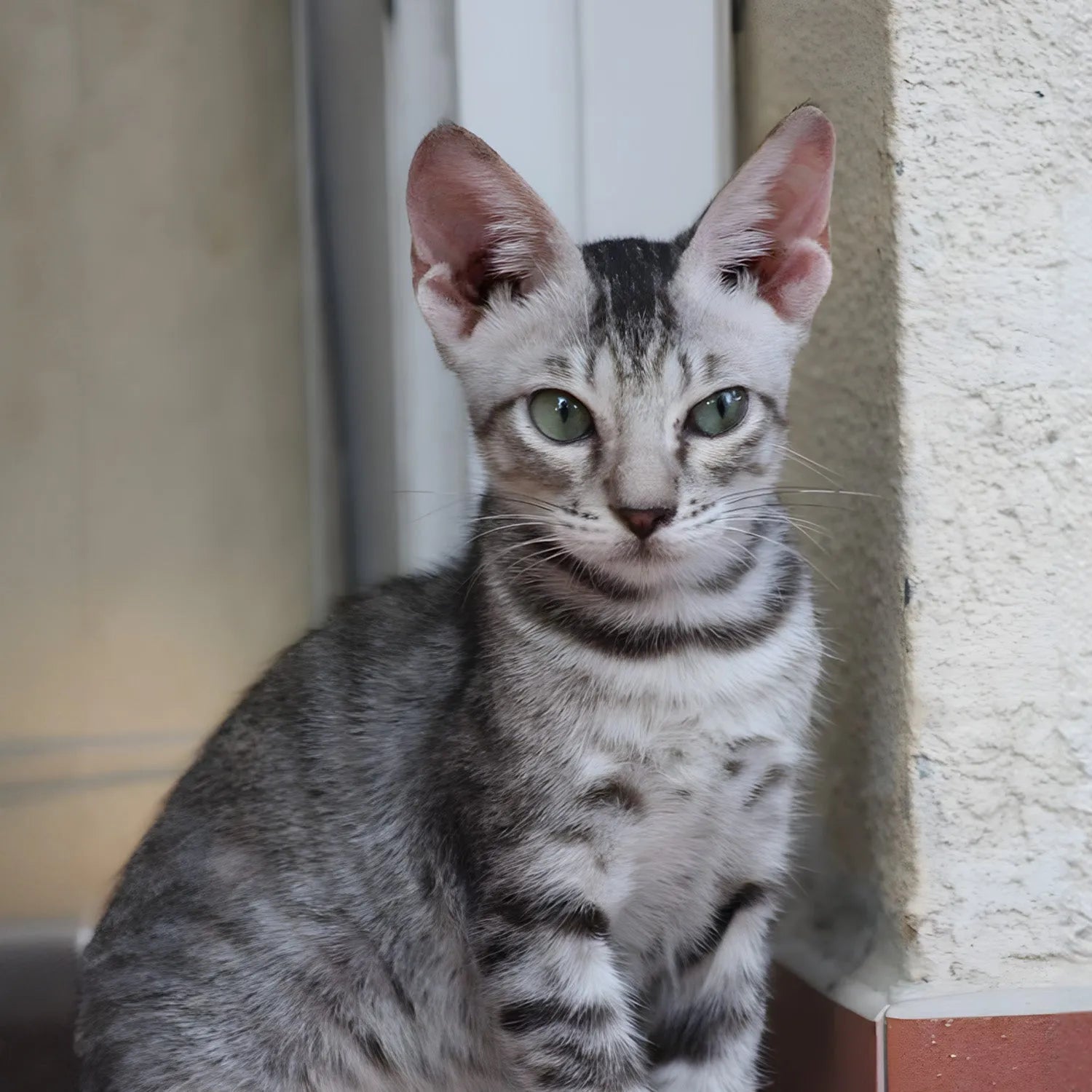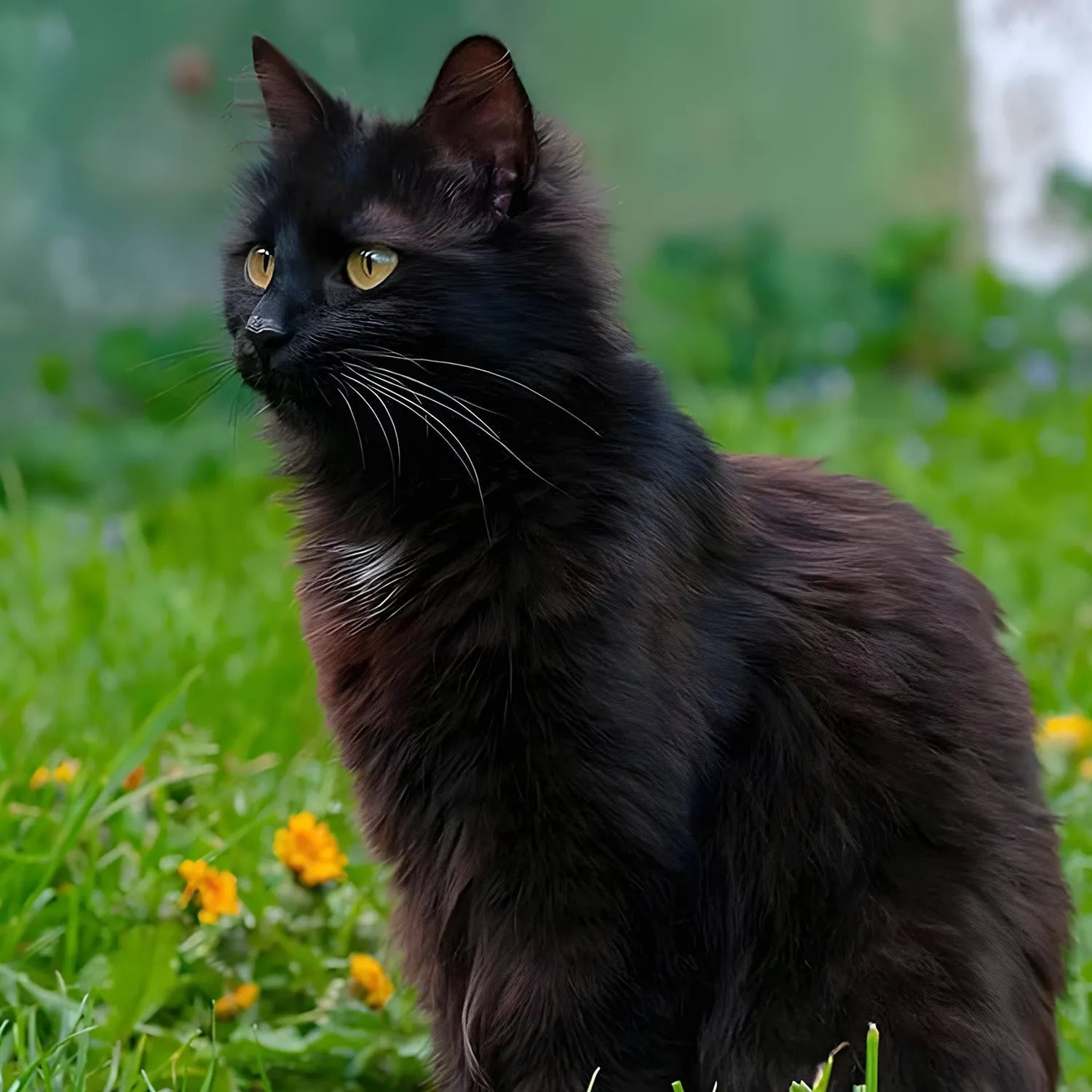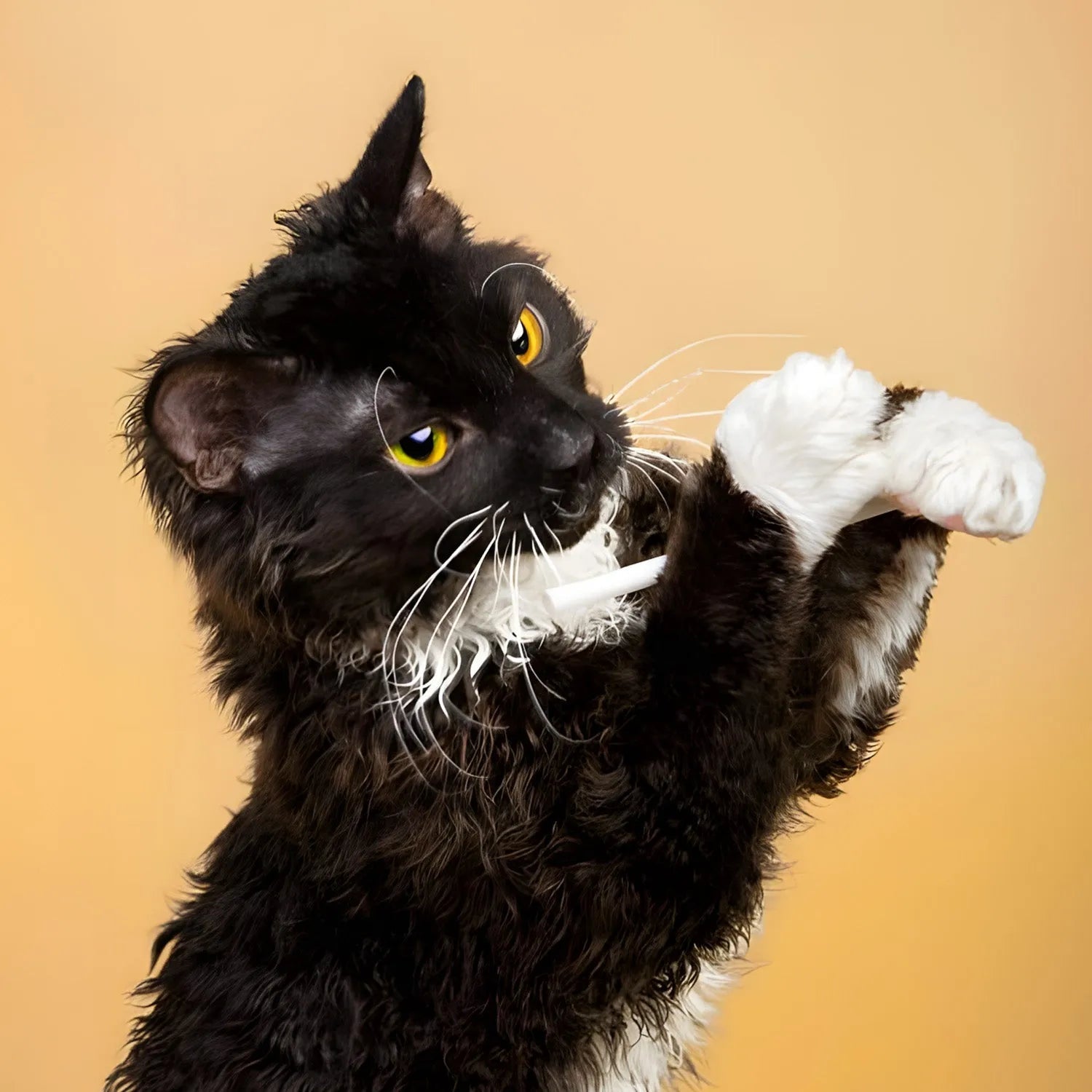Abyssinian Cat: The Energetic and Loyal Companion
Introduction
The Abyssinian cat, often referred to as the "Aby," is one of the oldest known cat breeds. Believed to have origins in ancient Egypt, this breed is admired for its elegant appearance, energetic personality, and unwavering loyalty. In this blog, we'll delve into the Abyssinian's lifestyle, behavior, trainability, and compatibility with humans, providing a comprehensive overview of what makes this breed a favorite among cat enthusiasts.
Ratings (1-5)
-
Environmental Adaptability: 4
-
Food Consumption: 3
-
Need for Companionship: 5
-
Trainability: 5
-
Tolerance of Children: 4
-
Ease of Domestication: 4
History and Origins
The Abyssinian cat's history is shrouded in mystery, with many believing they descended from the sacred cats of ancient Egypt. The breed was first recognized in the late 19th century in the United Kingdom and has since gained popularity worldwide. Historical references, including artifacts and murals, suggest that cats resembling the Abyssinian existed in ancient Egypt over 4,000 years ago. The breed made its way to Europe in the 1860s, and by the early 20th century, it had established itself as a beloved domestic breed.
Physical Characteristics and Colors
Abyssinians are medium-sized cats with a muscular build and a sleek, elegant appearance. They have large, expressive almond-shaped eyes that can be gold, green, or hazel, and their ears are large and pointed, giving them an alert look. The Abyssinian coat comes in a variety of colors, including ruddy, red, blue, and fawn, all characterized by the unique ticking pattern that sets this breed apart. The ticked coat, where each hair has multiple bands of color, gives the Abyssinian its distinctive, shimmering appearance.
Lifestyle and Behavior
Abyssinians are known for their high energy levels and playful nature. They are curious and love to explore their surroundings, making them excellent companions for active households. This breed enjoys climbing and often seeks high vantage points to observe its environment. Interactive toys and engaging activities are essential to keep an Abyssinian mentally and physically stimulated. Abyssinians are often described as "busy cats" because they are always on the move, exploring every nook and cranny of their environment.
Trainability and Intelligence
Abyssinians are highly intelligent and can be trained to perform tricks and respond to commands. They are quick learners and enjoy the mental challenge of training sessions. Positive reinforcement techniques work best with this breed, and they thrive on the attention and praise from their owners. Abyssinians can be taught to fetch, walk on a leash, and even perform agility courses. Their intelligence and curiosity make them adept problem solvers, which can sometimes lead them into mischief if not adequately entertained.
Social Behavior and Human Interaction
Abyssinians are affectionate and form strong bonds with their human companions. They are known to be loyal and often follow their owners around the house. This breed is sociable and enjoys the company of people, making them excellent pets for families and individuals alike. However, they can be a bit reserved with strangers until they feel comfortable. Abyssinians are often compared to dogs in their loyalty and affection towards their owners. They enjoy being involved in household activities and often seek out interaction and playtime with their human companions.
Compatibility with Children and Other Pets
Abyssinians generally get along well with children, especially if they are introduced to them at a young age. They are playful and can be quite entertaining for kids. However, due to their high energy levels, supervision is recommended to ensure that interactions remain positive and gentle. Abyssinians can also coexist with other pets, particularly if they are raised together, but their dominant nature might require careful introductions. They tend to get along well with other cats and dogs, provided those pets are respectful of the Abyssinian's space and energy.
Grooming and Care
Despite their short coat, Abyssinians do require regular grooming to keep their fur in top condition. Weekly brushing helps to remove loose hairs and keep the coat shiny. Regular dental care, ear cleaning, and nail trimming are also important aspects of their grooming routine. Abyssinians are generally low-maintenance in terms of grooming, but they do benefit from regular attention to ensure their coat and overall health are maintained.
Health and Lifespan
Abyssinians are generally healthy cats, but they can be prone to certain genetic conditions such as renal amyloidosis and progressive retinal atrophy. Regular veterinary check-ups and a balanced diet can help maintain their overall health. With proper care, Abyssinians can live up to 15 years or more. It is essential for prospective Abyssinian owners to be aware of these potential health issues and to seek cats from reputable breeders who test for genetic conditions.
Environmental Adaptability
Abyssinians adapt well to various living environments, but they thrive best in homes where they have plenty of space to explore and play. They can be quite adventurous, so it's important to cat-proof your home to prevent any accidental escapes or injuries. Providing a stimulating environment with plenty of climbing opportunities, interactive toys, and places to explore will help keep an Abyssinian happy and healthy.
Feeding Requirements
A balanced diet rich in protein is essential for maintaining the Abyssinian's muscular build and high energy levels. Consult your veterinarian for specific dietary recommendations, and ensure that fresh water is always available. Abyssinians can be prone to obesity if overfed, so it's important to monitor their diet and provide regular exercise to keep them fit and healthy.
Conclusion
The Abyssinian cat is a dynamic and affectionate breed that brings joy and activity to any household. Their intelligence and loyalty make them wonderful companions, and their playful nature ensures that there's never a dull moment. If you're looking for a cat that is both loving and entertaining, the Abyssinian might just be the perfect fit for you.
For more information about other cat breeds and pet care tips, stay tuned to our blog!
References:
-
Smith, P. (2021). "The History and Characteristics of the Abyssinian Cat." *Journal of Feline Studies*, 34(2), 123-135.
-
Johnson, A. (2019). "Understanding the Abyssinian: A Guide to Care and Training." *Cat Enthusiast Magazine*, May issue, pp. 45-50.
-
Williams, R. (2020). "Genetic Health in Abyssinians: What You Need to Know." *Veterinary Journal*, 78(4), 456-468.


